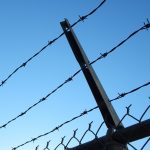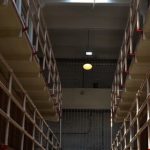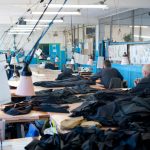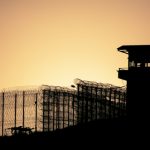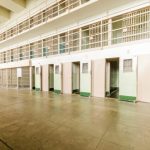Parklea Correctional Centre: A Privately-Run Prison in Crisis
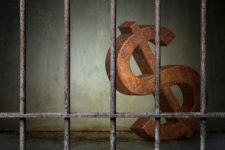
An inmate at Parklea Correctional Centre uploaded a video filmed using a contraband smartphone onto YouTube in July 2017. During the clip, the inmate flaunts a knife and another weapon, and he also holds up a small bag of white powder that he alleges is the drug ice.
The man explains that all of the contraband is being brought into the prison by crooked guards in exchange for money. “On a day-to-day basis this place is a dead-set joke,” the inmate makes clear. “It’s a dead-set joke.”
A subsequent sweep of the second largest prison in the state uncovered nine mobile phones, three phone chargers, 60 white and green capsules, 11 heart-shaped pills and 50 grams of tobacco.
A media crisis erupted after the release of the clip, which followed another embarrassing incident six months earlier that involved an inmate stealing a set of keys as he was being released. Staff weren’t aware of the breach until the next day. And a manager allegedly tried to cover it up.
Straight after the YouTube clip incident, Corrective Services NSW commissioner Peter Severin launched an intervention at the facility, which saw a team from his department overseeing the major decisions made by GEO Group Australia: the company running the private prison.
And just a fortnight ago, a parliamentary committee tasked with investigating current operations at Parklea prison tabled its report, which revealed that GEO allowed problems to escalate to crisis point and then took no responsibility for its part in the breakdown.
A prison run riot
Released on 21 December, the Parklea Correctional Centre and Other Operational Issues report outlines that the problems with security and contraband at the facility were “symptomatic of more longstanding fundamental failures of leadership and culture in the private prison”.
The inquiry further found that GEO failed to meet its obligations in running the prison, as well as failing to manage the facility adequately and it didn’t recognise or address systemic problems in an adequate way.
The committee listed a number of key incidents that transpired at the centre, which included a female guard being assaulted and threatened by her manager after she accused him of smuggling contraband.
The manager then went on to provide the woman’s personal details – including her address – to some of the inmates.
At one point, inmates had to be placed in lockdown as an extendable baton had been stolen. Another incident involved a prison guard being stabbed twice. And another saw guards failing to notice that an 81-year-old inmate had committed suicide.
The remand and reception centre also has an issue with deaths in custody and self-harm. Since 2016, eleven inmates have died whilst in detention and seven of these were incidents suicides. There were also five incidents of self-harm over the same period.
Undermining inmates’ legal rights
“Over the years, Parklea Correctional Centre has built a notorious reputation for being unreliable when dealing with members of the legal profession,” Sydney barrister Wali Shukoor told Sydney Criminal Lawyers. “In my experience, the centre is highly disorganised when facilitating legal visits.”
Indeed, the parliamentary inquiry pointed to impediments to inmates’ legal communications being a failing point at the centre. And this is despite the fact that international human rights instruments state that an inmate with pending legal matters must be able to access a lawyer.
Mr Shukoor explained that issues at the centre range from “severe delays in bringing inmates to preapproved legal conferences, or in some cases failing to locate and bring the inmate to legal interview rooms at all”.
Inconsistent and time-consuming entry points for legal professionals is another gripe the barrister has. And he recalls that often those at reception will not be given any notice about preapproved visits, even though management has ticked off on them.
“This often leads to extensive delay when seeking admission into the centre and inevitably the delay will be to the detriment of the inmate, who will have less time with their legal representative,” Mr Shukoor continued.
Inadequate staffing
The report also puts forth that the staffing and culture at the centre are not only problems in themselves, but they’re also a major contributing factor to all other issues being faced at the facility.
Public Service Association of Australia assistant general secretary Mr Troy Wright said in a submission to the inquiry that Parklea has had a lack of staff, inexperienced staff and “horrifically low staff morale” for a long time.
While Justice Action coordinator Brett Collins pointed to a recent incident involving the bashing of an inmate, where there was a delayed response of half an hour due to inadequate staffing levels. At the time, there was only one officer available to respond.
The state prison boom
The crisis at Parklea Correctional Centre coincided with a huge increase in the number of inmates being detained in NSW correctional facilities. Between July 2014 and July 2017, the state prisoner population increased by 26 percent, up from 10,384 inmates to 13,120.
This rise in the number of citizens being sent to prison is happening at the same time that NSW is experiencing its lowest crime rates in 40 years. The report puts this rise in inmates down to higher arrest rates, more custodial sentences being handed down and a rise in bail refusals.
And in order to accommodate these rising prison numbers, the NSW Liberal Nationals government announced $3.8 billion in funding to provide for an extra 7,000 prison beds, which will allow authorities to detain around 50 percent more inmates.
The funding will provide for expansions at Parklea and Junee Correctional Centre: the state’s other private prison. And it’s also covering some of the costs of the Clarence Correctional Centre, which is currently under construction near Grafton. It will become the state’s third private prison.
In 2016-17, around 14 percent of the state’s prisoner population were being detained in privately-run facilities.
Changing of the guard
In September last year, NSW corrective services minister David Elliott announced that GEO’s contract will not be renewed at Parklea. As of April this year, a joint venture between US Management and Training Corporation and Australia’s Broadspectrum will take over.
However, it’s yet to be seen whether simply changing the management at Parklea will resolve the long-term problems at the facility. According to Mr Shukoor, certain operational issues could be easily smoothed out, whereas as ingrained attitudes might prove problematic.
“Amending policies and procedures so as to grant inmates fairer access to their legal representatives would be quite straightforward,” the barrister concluded, “the more difficult task would appear to be in reforming the underlying culture of the centre, which has allowed such significant issues to fester.



